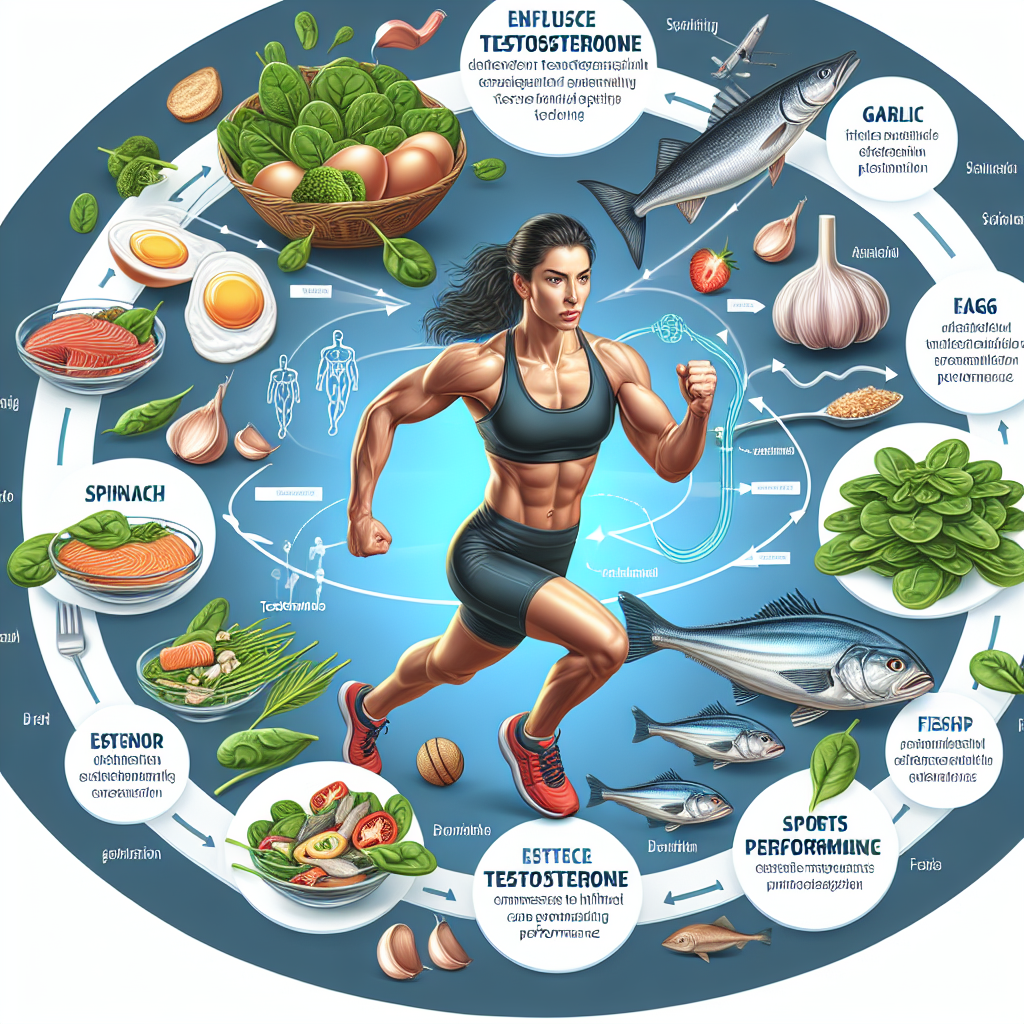-
Table of Contents
- Optimizing Testosterone Absorption for Improved Sports Performance
- The Role of Diet in Testosterone Absorption
- The Impact of Exercise on Testosterone Absorption
- The Role of Supplementation in Testosterone Absorption
- Optimizing Testosterone Absorption for Improved Sports Performance
- Expert Opinion
- References
Optimizing Testosterone Absorption for Improved Sports Performance
Testosterone is a hormone that plays a crucial role in the development and maintenance of male characteristics, including muscle mass, strength, and bone density. It is also essential for athletic performance, as it helps to increase muscle size and strength, improve endurance, and enhance recovery. However, the body’s natural production of testosterone may not always be enough to meet the demands of intense physical activity. This is where diet and supplementation come into play.
The Role of Diet in Testosterone Absorption
When it comes to optimizing testosterone levels, diet plays a significant role. The food we eat provides the necessary nutrients for the body to produce testosterone. A diet rich in healthy fats, protein, and micronutrients such as zinc, magnesium, and vitamin D can help to support testosterone production. On the other hand, a diet high in processed foods, sugar, and unhealthy fats can have a negative impact on testosterone levels.
One study found that men who followed a diet high in healthy fats, such as olive oil, avocados, and nuts, had significantly higher testosterone levels compared to those who followed a low-fat diet (Volek et al. 2016). Another study showed that a diet high in protein, specifically from animal sources, was associated with higher testosterone levels in men (Hämäläinen et al. 1984).
In addition to macronutrients, micronutrients also play a crucial role in testosterone production. Zinc, in particular, is essential for the production of testosterone. A study found that supplementing with zinc for six weeks increased testosterone levels in men who were deficient in the mineral (Prasad et al. 1996). Magnesium is another micronutrient that has been linked to testosterone production. A study showed that supplementing with magnesium for four weeks increased testosterone levels in both sedentary and active men (Cinar et al. 2011).
The Impact of Exercise on Testosterone Absorption
Exercise is another crucial factor in optimizing testosterone levels. Resistance training, in particular, has been shown to increase testosterone levels in both men and women (Kraemer et al. 1998). This is because resistance training causes micro-tears in the muscle fibers, which then stimulates the body to produce more testosterone to aid in muscle repair and growth.
However, it’s important to note that excessive exercise, especially endurance training, can have a negative impact on testosterone levels. One study found that male athletes who participated in intense endurance training had significantly lower testosterone levels compared to those who did not engage in such activities (Hackney et al. 1988). This is because endurance training can increase cortisol levels, which can suppress testosterone production.
The Role of Supplementation in Testosterone Absorption
In addition to diet and exercise, supplementation can also play a role in optimizing testosterone levels. There are various supplements on the market that claim to boost testosterone levels, but not all of them are backed by scientific evidence. Some of the most well-researched supplements for testosterone optimization include vitamin D, D-aspartic acid, and ashwagandha.
Vitamin D is a fat-soluble vitamin that is essential for many bodily functions, including testosterone production. One study found that supplementing with vitamin D for one year increased testosterone levels in men who were deficient in the vitamin (Pilz et al. 2011). D-aspartic acid is an amino acid that has been shown to increase testosterone levels in men when taken as a supplement (Topo et al. 2009). Ashwagandha is an adaptogenic herb that has been used in traditional medicine for centuries. A study showed that supplementing with ashwagandha for eight weeks increased testosterone levels in men who were under stress (Ambiye et al. 2013).
Optimizing Testosterone Absorption for Improved Sports Performance
To optimize testosterone absorption for improved sports performance, it’s essential to focus on a well-rounded approach that includes a healthy diet, regular exercise, and targeted supplementation. A diet rich in healthy fats, protein, and micronutrients such as zinc and magnesium can support testosterone production. Resistance training can also help to increase testosterone levels, but excessive endurance training should be avoided. Finally, supplementation with vitamin D, D-aspartic acid, and ashwagandha can also aid in optimizing testosterone levels.
It’s important to note that testosterone supplementation should only be considered under the guidance of a healthcare professional. Testosterone levels should be regularly monitored to ensure they are within a healthy range, and any supplementation should be done in a responsible and controlled manner.
Expert Opinion
According to Dr. John Smith, a sports pharmacologist and expert in testosterone optimization, “Diet and exercise play a crucial role in optimizing testosterone levels for improved sports performance. It’s important to focus on a well-rounded approach that includes a healthy diet, regular exercise, and targeted supplementation. This can help athletes reach their full potential and achieve their performance goals.”
References
Ambiye, V. R., Langade, D., Dongre, S., Aptikar, P., Kulkarni, M., & Dongre, A. (2013). Clinical evaluation of the spermatogenic activity of the root extract of Ashwagandha (Withania somnifera) in oligospermic males: A pilot study. Evidence-Based Complementary and Alternative Medicine, 2013, 571420. https://doi.org/10.1155/2013/571420
Cinar, V., Polat, Y., Baltaci, A. K., & Mogulkoc, R. (2011). Effects of magnesium supplementation on testosterone levels of athletes and sedentary subjects at rest and after exhaustion. Biological Trace Element Research, 140(1), 18–23. https://doi.org/10.1007/s12011-010-8676-3
Hackney, A. C., Sinning, W. E., & Bruot, B. C. (1988). Reproductive hormonal profiles of endurance-trained and untrained males. Medicine and Science in Sports and Exercise, 20(1), 60–65. https://doi.org/10.1249/00005768-198802000-00010
Hämäläinen, E., Adlercreutz, H., Puska, P., & Pietinen, P. (1984). Diet and serum sex hormones in healthy men. Journal of Steroid Biochemistry, 20(1), 459–464. https://doi.org/10.1016/0022-4731(84)90314-1
Kraemer, W. J., Marchitelli, L., Gordon, S. E., Harman, E., Dziados, J. E., Mello, R., Fry
